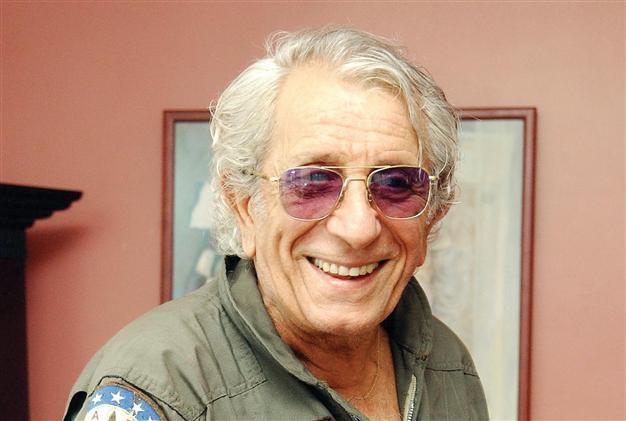Prominent theater actor Nejat Uygur passes away at 86
ISTANBUL

Uygur preferred a profession in which he would be in one-on-one contact with people and be able to shape their feelings and pull them emotionally in the direction he wished.
Prominent Turkish stage actor Nejat Uygur (86) passed away in MediState Kavacık Hospital in Istanbul on Nov 18. Uygur, born in the southern Turkish province of Kilis in 1927, started his career in drama in 1949 by launching the Nejat Uygur Theatre.
Uygur had many awards for drama and he played in many famous Turkish films. Uygur suffered paralysis in 2007, stemming from cerebral embolism. He was married with five children. Uygur was one of the most productive and important actors in Turkish theater. After his death, Uygur’s fans and many theater actors and actresses visited his family at the hospital.
On the other hand, President Abdullah Gül said he will always remember Uygur with appreciation. He also added that Uygur’s life and love for theater was appreciated in the art world. Gül’s condolence message said: “Nejat Uygur spent his years for Turkish theater and his death has affected everyone with sorrow. Uygur had an appreciated life with his love of theater and arts and he will always be remembered. We send our condolences to the Uygur family and the art world.”
Prime Minister Recep Tayyip Erdoğan also sent his condolences with a message. Erdoğan’s message said: “Humor master, theater and cinema actor Nejat Uygur has passed away. Uygur’s death has saddened us deeply. Uygur made everyone laughed throughout all his life and he was an inspiration for young artists. We send our condolence to all and his family.”
Tourism and Culture Minister Ömer Çelik said: “I am deeply saddened by the death of Uygur, who was a master of the theater. Uygur was a unique man who made us all laugh. We will always remember Uygur and miss him. His efforts are infinite for us.”
Many famous names have visited the hospital after the announcement of Uygur’s death: Şişli Mayor Mustafa Sarıgül, singer Alişan, actor Okan Karacan, singer Seren Serengil and anchorman Deniz Arman have all visited the hospital.
Mustafa Sarıgül said: “I send my condolences to the entire art world. I was very close with him. He lived in Fulya and I visited him quite often. I learned a lot from him.”
Uygur’s sons Süheyl and Behzat Uygur have organized a press conference. The sons of Uygur said, “His treatment was going very well. However, in the last ten days, his blood values changed. As a result, problems occurred in his respiratory system and we have lost him at 7:50 pm.”
Noting their father was loved by everyone, Behzat Uygur said: “Uygur will be remembered always and forever. He was close to everyone.”
The artist’s funeral is expected to take place today in Teşvikiye Mosque, after the Zincirlikuyu Cemetery.
Süheyl Uygur said Turkey has lost a legend. “We are very sad. In the past, internet websites published faulty news about my father’s death. Many times, the websites accidently wrote that he died. Now, it is true and we are very sad.”
Uygur was born in 1927. The second child of an army officer father and a schoolteacher mother, Uygur was born in Kilis near the Syrian border. Nejat Uygur was the middle child of his family. While his younger brother opted for space science and his elder brother became a brain surgeon, both making important contributions through their scientific research, Uygur preferred a profession in which he would be in one-on-one contact with people and be able to shape their feelings and pull them emotionally in the direction he wished. Going for the comedy side, he chose to make people laugh. After his 13 year Anatolian Tour, he had four children Süheyl, Süha, Kemal and Behzat. He received the State Artist title in 1998 for his performances on tour.
Uygur was also a TV character in his shows. Turkey’s private channels first started broadcasting his shows, where they again earned the highest ratings. According to many people he was “a world-class genius of the surreal.” Many people have said, professional opinion aside, it was the audience’s interest that raised and developed Uygur.
